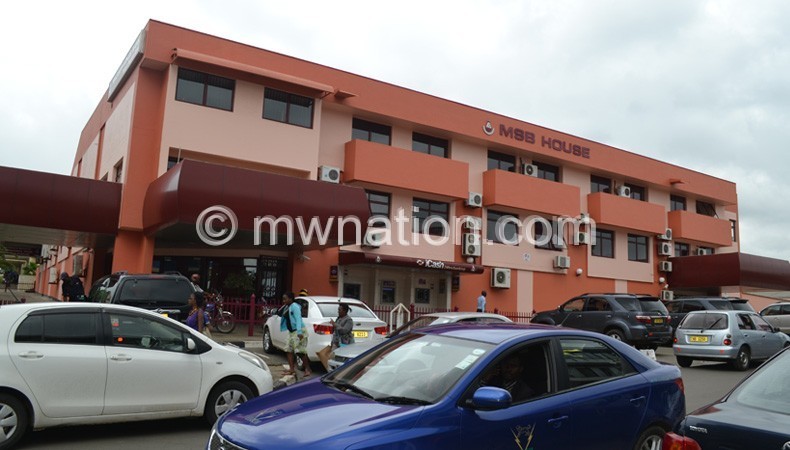Exclusive: Malawi Govt settles Mulli’s K5bn loan, 12 others at MSB
The recent K6 billion promissory notes government has decided to issue to Malawi Savings Bank (MSB) for the so-called toxic assets is in fact a bailout for private individuals and companies that failed to service their loans at the State-owned bank.
This basically means that cash-strapped Capital Hill—which is struggling to even buy the most basic of drugs for its people—has committed taxpayers’ money to repay loans that 13 private sector players took from the now ‘for sale’ MSB and failed to repay.
Of the total giveaway, roughly 83 percent (K4.9 billion) has gone to Mulli Brothers Limited (MBL)—whose managing director, Leston Mulli, is a known supporter of the ruling Democratic Progressive Party (DPP) and a close ally of former president the late Bingu wa Mutharika, the elder brother to the current leader, Peter Mutharika.

But commentators such as the Consumers Association of Malawi (Cama) and governance body Catholic Commission for Justice and Peace (CCJP) have condemned government for forcing taxpayers to pay for the loans.
It was only last week that Treasury instructed RBM to issue the K6 billion promissory notes to take toxic assets off MSB books.
–The toxic assets list–
A list of MSB toxic assets as at March 31 2015, which The Nation has seen, shows that 13 individuals and companies are failing to pay back K6 074 773 871.70 loans that they collected from the bank at different times.
Major on the list of the toxic loans, which government has taken over, is the MBL loan, which stands at K4 969 043 316.93.
Other defaulters included Varibo Spirits—owned by Duncan Kaonga—at K397 763 522.07, KJ Transways owned by a Mr Mkumba has a K172 536 106.23 loan that has not been serviced, Ganizani Transport owned by Charles Fungula owes the bank K97 908 785.35.
The bank was also failing to collect K83 960 954.29 from Maranatha Institute of Education owned by Ernest Kaonga, K71 220 602.47 from Consolidated Building Contractors owned by Peter Mhone, K69 776 370.81 from CK Construction of Chester Makuwira.
The bank is also failing to collect K68 034 537.28 from Fincoop, K65 910 536.30 from K’s Investments owned by Bintony Kutsaira, K30 717 180.76 from MGI Trading of Macpharen Mpeta Phiri, K27 179 448.51 of Injena Petroleum Limited, K20 722 510.70 of Angel Wings owned by Angel Chaponda Nazombe and K12 782 074.13 of Eranive Trading for Fanny Joshua.
–Treasury blames court order–
Treasury spokesperson Nations Msowoya said government took over the MSB toxic loans because the bank failed to recover the debts for a long time, adding that the decision was to deal with the toxic loans pragmatically; “not protecting any individuals.”
“Therefore, continued pressure on the bank that has already failed to recover these loans will not help in terms of its net worth. The government has, therefore, taken a decision to deal with the toxic loans separately,” he said.

“Government is in the process of creating a Special Purpose Vehicle/Debt Collection Unit to ensure that these loans are repaid. This process is at a very advanced stage,” he said.
“This would not have been necessary if the process of recapitalisation was allowed undeterred. The [court]injunction has, therefore, necessitated government to act as it has done, so that the bank can continue its normal banking operations.
“It should be noted that these toxic loans have been on the banks’ books for a very long time without generating any interest/income for the bank, and this has reduced its share value,” he said.
Activists angry
But Consumers Association of Malawi (Cama) executive director John Kapito said there was no justification to punish the poor for loans that were borrowed by individuals whose businesses are still running.
“Why was government ready to absorb loans of individual companies still running in Malawi? This is very strange. This is pure stealing from the poor and should never be allowed in a poor economy like Malawi,” he said.
CCJP national coordinator Chris Chisoni said the justification sounded strange for a government that is struggling to finance the zero-aid budget.
In a report that the Budget and Finance Committee of Parliament issued on MSB recapitalisation, the committee mostly blamed the Executive for failing to support MSB’s efforts to collect the money from MBL, for example.
“The case in point is when MSB management and Mulli Brothers signed an assignment of proceeds whereby all moneys owned by government to Mulli Brothers was supposed to be channelled through MSB and government issued a Letter of Undertaking to this effect. Contrary to this arrangement, government continued to bypass MSB and paid Mulli Brothers directly,” he said.
Yesterday, the committee’s chairperson Rhino Chiphiko said: “Can a company manage to collect money where the bank has failed? It is the will of most Malawians that the bank should remain in the hands of government and we are going to continue talking about it in Parliament,” he said.






Great reporting! This stupid govt ain’t taking us anywhere.
This pure stupidity from the Gov!! “let whoever earns the palm bear it.” Why should you inflict economic burdens on the already suffering taxpayers because of greedy business persons who have continually stolen from the government.
Malawi is a perpetual caricature of itself; at every moment it is the mockery and the contradiction of what it is pretending to be….